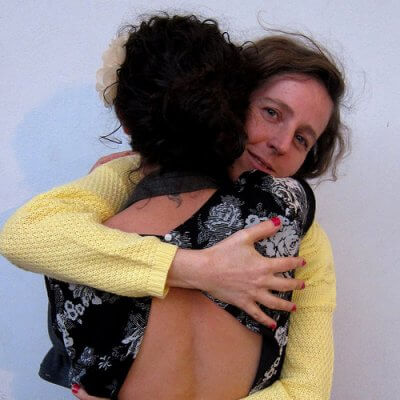Couple Fighting – How Often Do Healthy Partners Argue?

By: Mark Freeth
by Andrea M. Darcy
How often can couple fighting happen before your relationship is toxic?
It depends on your definition of ‘fighting’.
[Need a relationship checkup? Take our free quiz now, “Is Your Relationship Healthy, or Time to Worry?”].
Good and bad couple fighting
There is healthy conflict, and non-healthy conflict.
Healthy conflict is actually good for a relationship. It means the air is cleared in a way that doesn’t leave you or the relationship damaged. Instead, things can be left at a better level than before.
Unfortunately, most of us tend to engage in unhealthy and damaging behaviours when we fight. These are behaviours that leave both us, our partner, and the relationship itself diminished.
Is your conflict helping or hindering?
So what do you need to know about couple fighting to determine if you are fighting too much or not enough?
[Worried your fighting is out of control and want to talk to someone, fast? Book affordable online therapy today, be talking as soon as tomorrow.]
1. Fighting can be cultural.
Not all cultures have the same view on ‘fighting’. What one culture might view as a terrible fight might be not a big deal to someone from another, more passionate culture.
An English family, for example, might watch a scene in an Italian movie of a family shouting and screaming with a lot of aggressive gestures. It might seem a terrifying fight for them. Should they turn on the subtitles it might turn out that it’s a fight about politics that the family has all the time, and is more a way of connecting to them then fighting.
This is important because if a couple come from different backgrounds, one partner might think they are fighting. The other partner could feel they are just having a fiery and even enjoyable discussion.
2. The subject matters.

By: Emily Poisel
Normal healthy fighting happens when we need to make a decision, we have different opinions, and we are under stress or short on time. Our regular way of talking heats up. We fight over if we are taking the car or not to a party, or if we should go visit relatives.
Unhealthy fighting tends to be less about a pressing issue and more about one of the partners him or herself. It often signals a deeper unresolved issue in the relationship. This generally involves an attack on one partner’s ‘unacceptable’ behaviours.
3. Power dynamics signify the healthiness of your couple fighting.
A healthy fight tends to see both people being seen as equals. These fights tend to be more objective. For example, if you are fighting over one partner’s inability to show up to events on time, the fight stays about whether being on time is important or not.
Unhealthy arguments veer into power dynamics that diminish one partner while glorifying the other. Or they see one partner vying for control of the other.
So if that argument about the value of timekeeping were to become unhealthy? It would mean one partner implied they were more grown up than the other, more responsible. That the always late partner should be grateful they stay with them, or that from now on the tardy partner will receive alerts in the hours leading up to a meeting have to respond to. Can you smell the power tripping and control?
4. It also depends on whether the result of the fight is productive or not.

By: CityTree עץבעיר
Even if an argument seems fair and doesn’t diminish anyone involved? It can become unhealthy fighting if it becomes about the fighting itself inserted of seeking resolution.
This often looks like endless, sniping arguments about some small thing like loading the dishwasher. It becomes more about unloading stress on each other than about ever sorting out the issue. Over time this sort of repetitive fighting can be extremely damaging.
5. If there is an abusive component to the fighting then the answer is never.
If your fights with a partner involve physical abuse of any shape or form (grabbing you, for example, can still be physical abuse)? Or you are being psychologically abused and manipulated, or emotionally abused?
Then there is NO healthy level.
These types of relationships are really hard to exit. If you know you are in one, don’t beat yourself up that you are finding it hard to walk away. Just seek support.
Is it possible you aren’t fighting ENOUGH?
Yes.
Being with someone and never fighting because you share communication styles so resolve things quickly is one thing. Lucky you.
But look at your intentions behind never fighting. And look at your private thoughts about your partner and your relationship. Do you have any hidden resentment or bitterness? Is there a list in your head of all the things you don’t like about your partner and relationship?
If you never engage in relationship conflict because you are afraid of conflict or are so codependent you feel you have to please your partner over upset them? Then some healthy conflict could actually be good for your relationship.
So what’s the final answer? Look to how you feel
Healthy levels of fighting? They leave you feeling, well…. healthy. This includes physically, emotionally, and mentally.
If your couple fighting means you sometimes are frustrated, but in general within your relationship feel connected? Challenged, energised, and like are growing as a person? Then you are fine. You have a healthy level of healthy conflict.
If the conflict in your relationship means you feeling diminished, anxious, and exhausted, then it’s a red flag that either the couple fighting is out of control, or that you have a serious problem with honest communication and conflict. Sometimes conflict isn’t unhealthy but triggers our unresolved past trauma. It becomes a question of looking not just at the relationship, but yourself.
Worried about how much you are fighting with a partner? Harley Therapy connects you with highly experienced couples counsellors in central London. Not in London or the UK? Our sister booking site helps you find a therapist in the UK or a online therapist you can talk to from anywhere in the world.
 Andrea M. Darcy is a mental health and wellbeing expert and personal development teacher. With training in person-centred counselling and coaching, she often writes about trauma and relationships. She certainly learned a thing or two about cultural differences to conflict when she moved to France! Follow her for great life know how on Instagram @am_darcy
Andrea M. Darcy is a mental health and wellbeing expert and personal development teacher. With training in person-centred counselling and coaching, she often writes about trauma and relationships. She certainly learned a thing or two about cultural differences to conflict when she moved to France! Follow her for great life know how on Instagram @am_darcy




